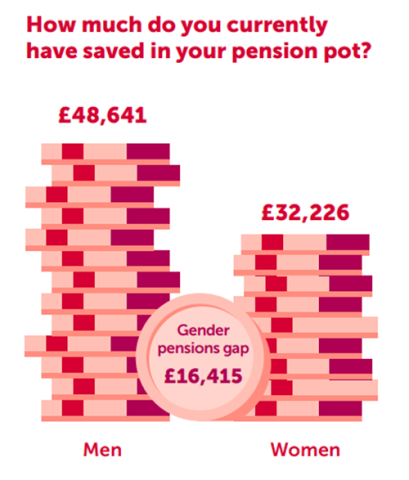With prices of just about everything still going up it might be hard to think about putting money away for the future but according to the latest government figures, the number of personal pension savers in the UK keeps going up. As of 2022, there are now 7.5 million of us using them to help build our retirement nest egg. They must think it’s worth it, so let’s find out more about them and why personal pensions can be a good move for your financial future.
What is a personal pension?
But let’s not get ahead of ourselves, you might well be asking ‘what even is a personal pension?’ and ‘how is it different to a workplace one?’.
A personal pension is an investment account you set up yourself and arrange your own contributions for. They’re usually opened to either supplement your workplace pension savings or, if you’re self-employed, as your main retirement pot. Like workplace pensions, you’ll get tax relief from the government on the amount you pay into it and any investment growth or income made is tax-free. But your employer won’t usually contribute to a personal pension – so if you pay into one instead of your workplace pension, you could be missing out on quite a bit of “free cash”.
There are a few different types of personal pensions you can open, with varying degrees of flexibility and investment options. We won’t go into all of them here but one of the most common types is a self-invested personal pension or ‘SIPP’ for short. They offer a wide range of investments to choose from and you can change what you’re invested in at any time. You can open a SIPP with investment platforms like AJ Bell and many easy-to-use investment apps, like Dodl now also offer them – meaning you can manage your retirement savings at the tap of a thumb.
Do you have to pay into a pension?
The short answer is no. No one is forcing you to pay into a pension, but saving enough for a retirement is an expensive and necessary financial goal. It’s made much easier the earlier you begin and it’s also easier if you never see the money going out of your bank account – which is exactly what happens with a workplace pension. You’ll be automatically enrolled into one if you’re over 21 and earning above 10,000 a year – though that is about to change. Each month a small proportion of your income will be funnelled off into it before you see your paycheque, along with tax relief from the government and your employer’s contribution.
However if you’re self-employed, not employed, or earn under the current threshold, it’s down to you to set up your own personal pension and keep on top of actively paying into this. The difficulty is retirement savings may not be the number one priority of someone running their own business or taking time out of work. And this relative difficulty of saving for retirement compared to the employed is borne out in recent figures from the ONS, showing as few as 1 in 10 self-employed workers pay into a pension annually.
In fact, I recently met up with a friend who’s self-employed, nearly 30 and, like many, has yet to build up any retirement savings. We talked about the pros and cons of paying into a pension to fill this current personal finance gap, but she was very set against it. And to be honest, I get it. The cost of living crisis has put extra pressure on our finances in the present – we’re directing more of our income towards getting by in the day-to-day, and our future finances are naturally taking a backseat. Being self-employed, or out of work, is likely to only add to this pressure.
Some, just like my friend, may also think things will simply work out and a personal pension is overkill when that money could be better spent towards nearer term wants and needs. They might suppose inheritance, choosing not to have kids, or being able to downsize their home and the state pension will provide enough income to let them enjoy the retirement they want. All these reasons and more can lead someone down the pension-less path. But that’s a risky move and if miscalculated could lead to less-than-ideal living standards in later years.
Personal pension pros
There’s a reason 7.5 million people have one, right? And most of them also have workplace pensions. So, what’s all the hype about?
Personal pensions are often more flexible than workplace pensions, allowing you greater hands-on control of what your savings are invested in. It’s also usually the case that personal pensions let you access your retirement savings a little earlier than workplace pensions do (the minimum age is currently 55, increasing to 57 from 2028). But the biggest pro of all is that, by paying into one, you’ll be building up a bigger pension pot than you otherwise would’ve had.
Research from the Pensions and Lifetime Savings Association found that someone wanting to live a ‘comfortable’ retirement would need to bring home over £37,000 a year. Bearing in mind that many people are now living off their retirement income for 20+ years, that’s a lot of pressure on your pension pots. And, based on our recent findings for our Financial Wobbly Bits Report, it’s actually a good bit more than the average size pension pot of a woman in the UK, which sits at £32,226. While the gender pension gap means men are usually better off than women, their average size pension pot of £48,641 still wouldn’t make for a comfortable retirement.

Source: Opinium/AJ Bell nationally representative research of 4,000 UK adults carried out in June 2023
Being able to live the life you want in your retirement is the ultimate reason more and more people who are in the financial position to do so, are turning to personal pensions. Though there are other ways to make sure you’re saving enough for retirement, the previously mentioned flexibility and tax benefits of personal pensions usually make them the most cost-effective way to do it.
So, are they worth it then?
Though there are lots of tempting reasons to put off saving (or saving enough) for your retirement – with one simply being not knowing how much we need to save – personal pensions are usually worth going for, even for those already paying into a workplace pension.
But of course, this isn’t advice, and everyone’s circumstances are different so take some time to reflect on your own pension position. If you're employed, how’s your workplace pension looking – could you do with supplementing your savings with a personal pension? And if you're self-employed, there’s no time like the present to review your retirement savings and set up a personal pension if you can afford to do so. Most importantly, if you need some direction on this, make sure you contact a suitable financial adviser.
We don’t offer advice, so it’s important you understand the risks, if you’re unsure please consult a suitably qualified financial adviser. The value of your investments can go down as well as up and you may get back less than you originally invested. How you're taxed will depend on your circumstances, and tax rules can change. Tax and pension rules apply.
These articles are for information purposes only and are not a personal recommendation.




